Pretty Baby (1978)
“I run a good old-fashioned whore house, monsieur.”
|
Synopsis: |
|
Genres, Themes, Actors, and Directors:
Response to Peary’s Review: He adds that while it’s possible “the real Violet (whose story is told in Al Rose’s nonfiction work Storyville, New Orleans) didn’t consider herself victimized when a child” (and neither does Shields herself, for having been allowed to play the role), it was nonetheless “irresponsible on Malle’s part to use her as his central character” and ignore “countless other ex-child prostitutes’… tales of horror.” He writes, “The sledgehammer ‘selling of Brooke Shields as pubescent sex symbol,’ which gained momentum because of this film, was truly tasteless” and these days wouldn’t be tolerated for a second; as DVD Savant writes in his review:
Exactly. Be forewarned. Meanwhile, Peary writes that “Shields gives the one impressive performance in the film”: … but “Sarandon’s role is too brief”: … “Carradine is badly miscast” (not to mention his character being poorly developed): … “and Faye is so atrocious” (I disagree) “that if she mangled the word monsieur one more time, [he’s] sure someone in the crew would have strangled her.” He adds that the “picture’s one strong suit is its look,” noting that “visually, the film is an homage to the impressionists of the era — just as the music is a tribute to the jazz greats of the period, like Jelly Roll Morton” (played as a slightly different but comparable character by Antonio Fargas). Despite Shields’s easy friendship with Fargas, racial tensions of the era are present and toxic in the film, with Black characters mostly relegated to poorly treated servant or mystical roles and given little to no agency or voice. One potent scene shows that Shields flirting with a young Black boy merits her a whipping because of his skin color — not because they’re too young for this type of sexualized interaction. Back to the film’s look, “each shot is beautifully composed, and the frame becomes a mixture of muted colors, natural light, and shadows.” Indeed, “as long as Malle and cinematographer Sven Nykvist concentrate on visuals, things run smoothly” — but “when characters speak Polly Platt’s dialogue, we are bombarded with the cliches we’ve heard in every other bad movie set in a brothel.” In his essay for Cult Movies 2, Peary elaborates on his disappointment with Malle for his overall (mis)handling of this film. Peary asserts that “Louis Malle is the classic voyeur among filmmakers,” with a “detached style” in which “the artist stands back from his subject” and “merely observes his characters going about their business within his created, or recreated worlds, rather than becoming involved in their lives and making judgments about them.” When it comes to a film about such a vile topic as under-aged prostitution, however, Malle’s approach of taking “a steamy, sensational subject and [striving] for artistry instead of controversy” simply doesn’t fly. Peary asserts that he sees “less objectivity than passivity, too much artistic pretentiousness, and, worse, the lack of necessary conflicts because Malle doesn’t want to choose sides.” But should we really not feel judgmental when watching Shields paraded out on a pallet for auction to the highest bidder? This scene is beyond disturbing, rightfully so. Perhaps worst of all is that a film this beautifully shot — on such a contentious but important historical topic — is so badly written, especially in the second half: it’s not “worth” the controversy or effort made to get past one’s disgust. Despite all my deep reservations, however, I think film fanatics should give this film a once-look simply to be familiar with its historical infamy. With that said, I don’t understand why it’s included as a cult movie; did people really go to see this again and again? And if so… that feels especially exploitative. Note: Watch for Barbara Steele and Diana Scarwid as two of the prostitutes, the former seeming realistic and the latter giving an atrocious performance with a German accent. Notable Performances, Qualities, and Moments: Must See? Categories
Links: |
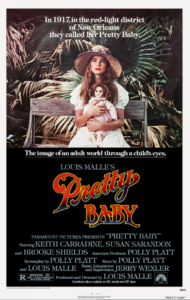
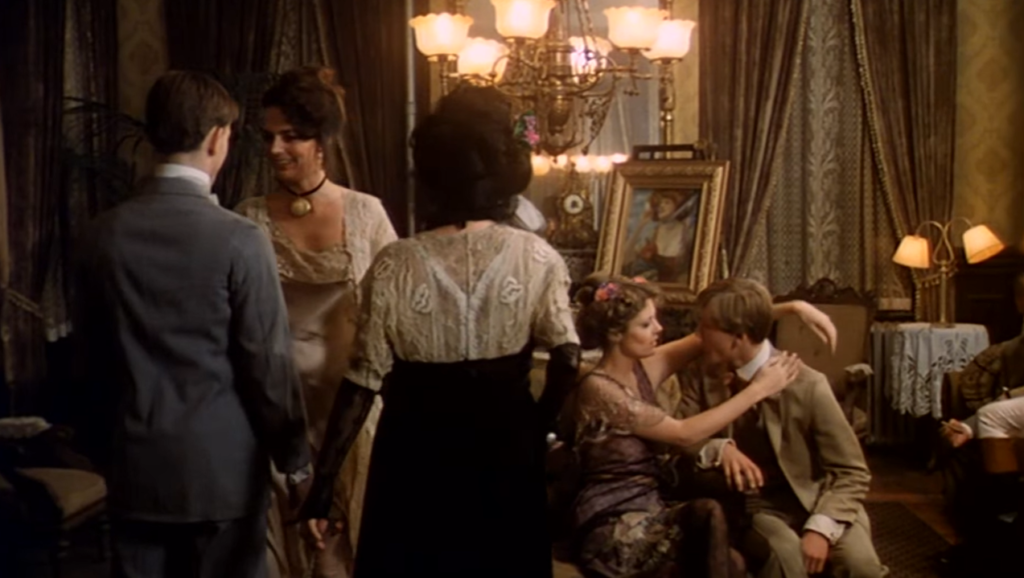
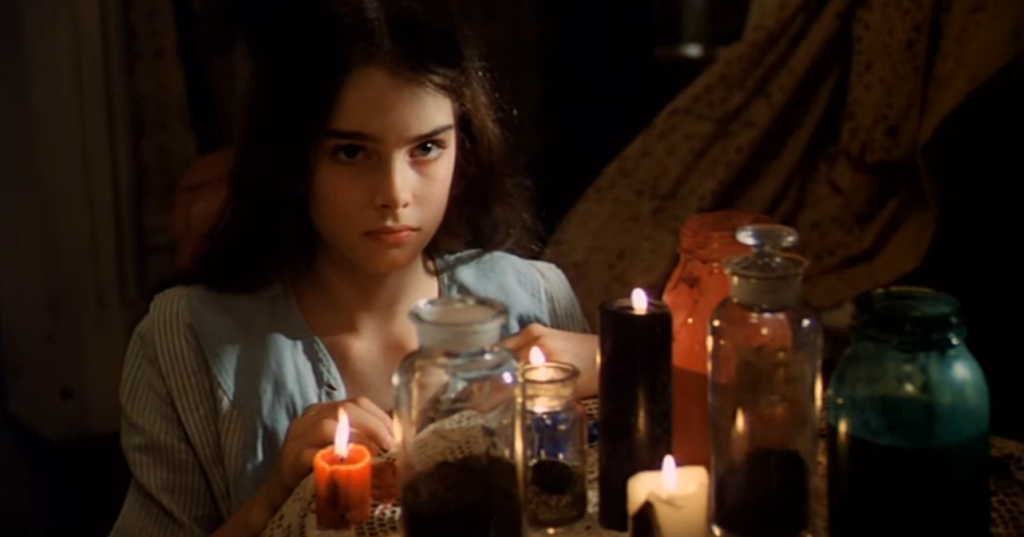
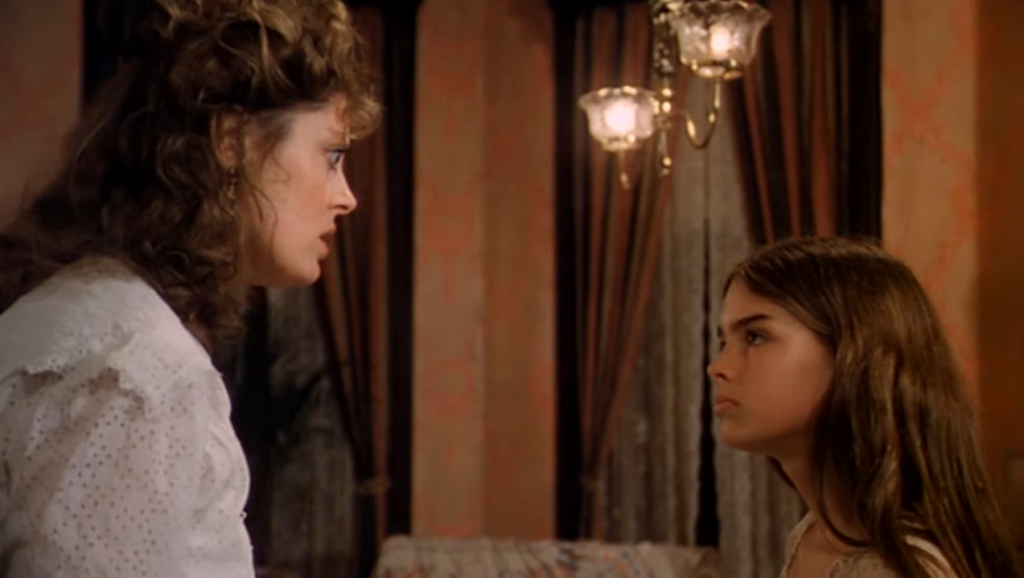
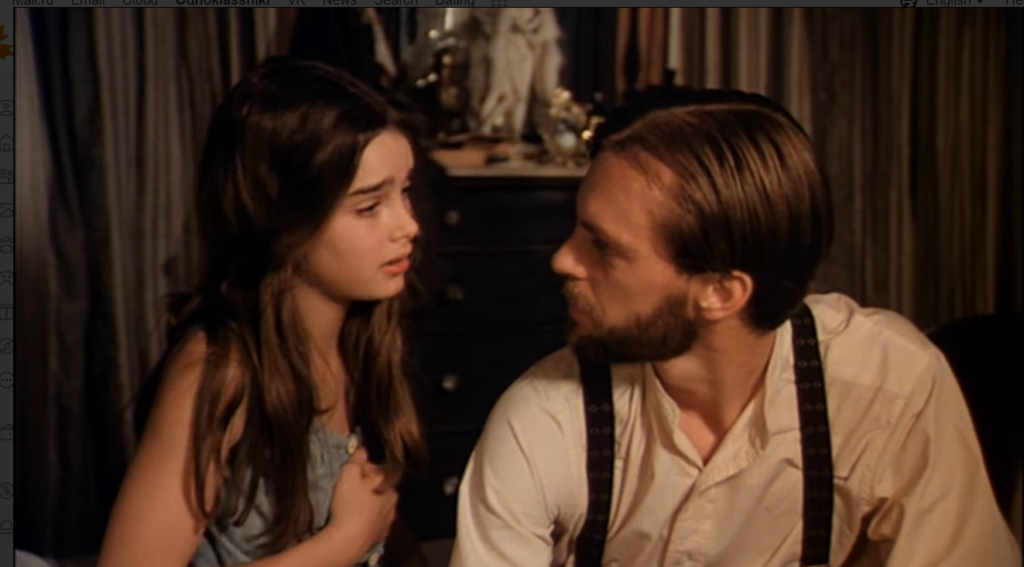
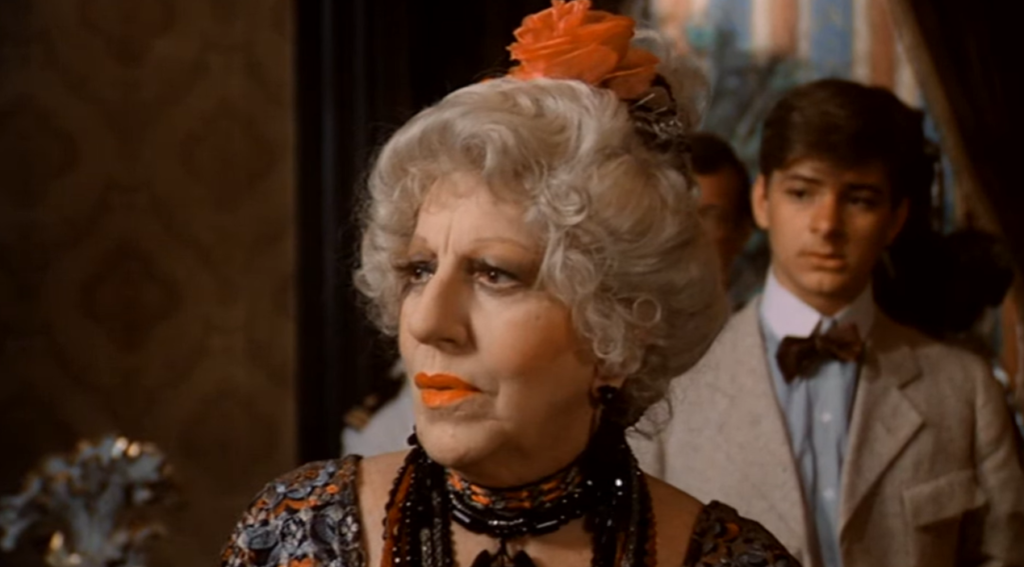
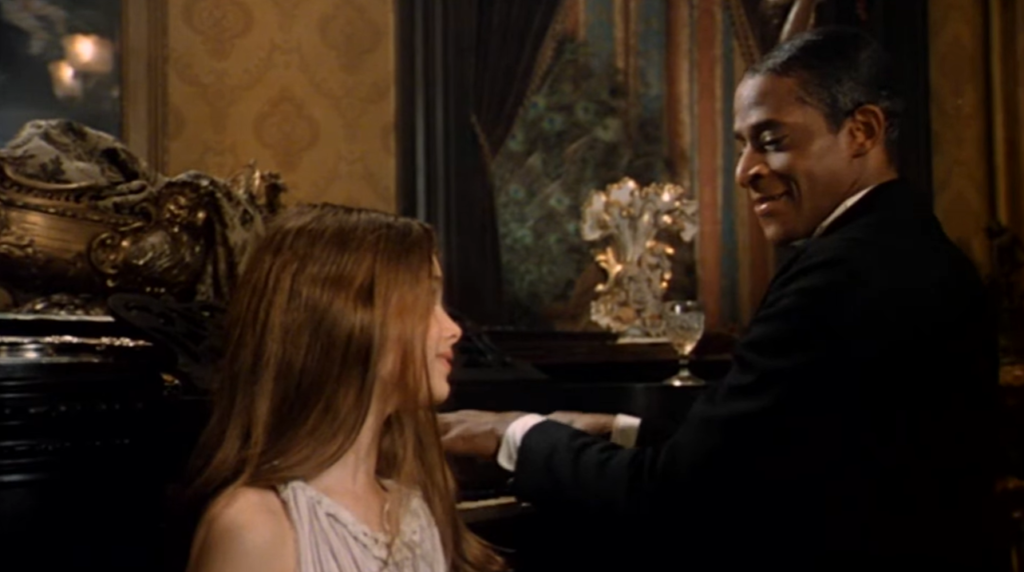
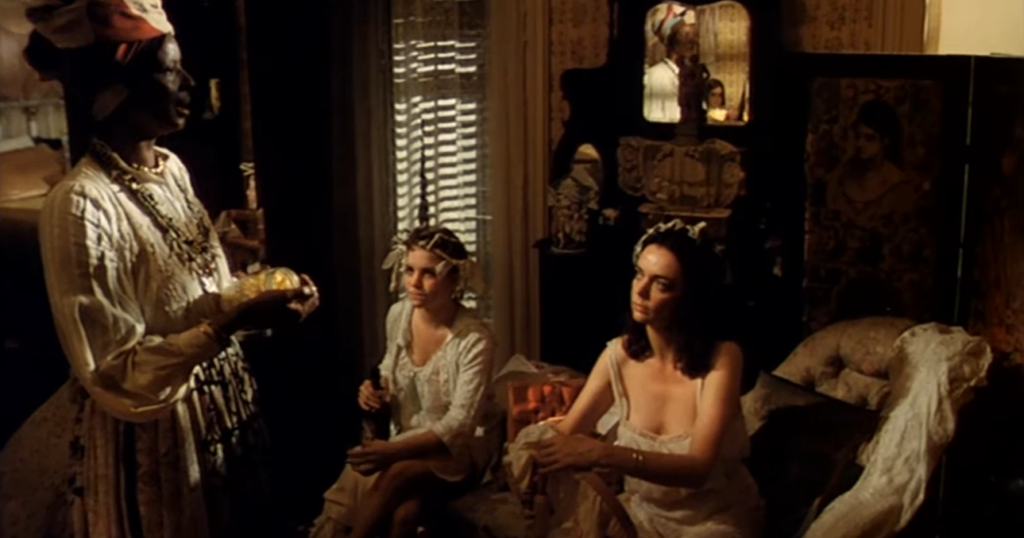
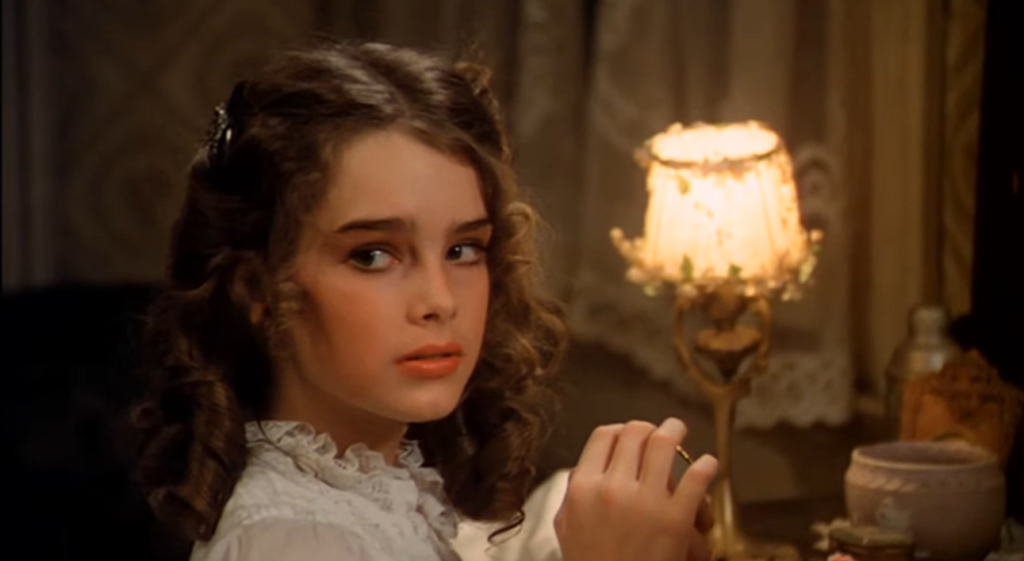
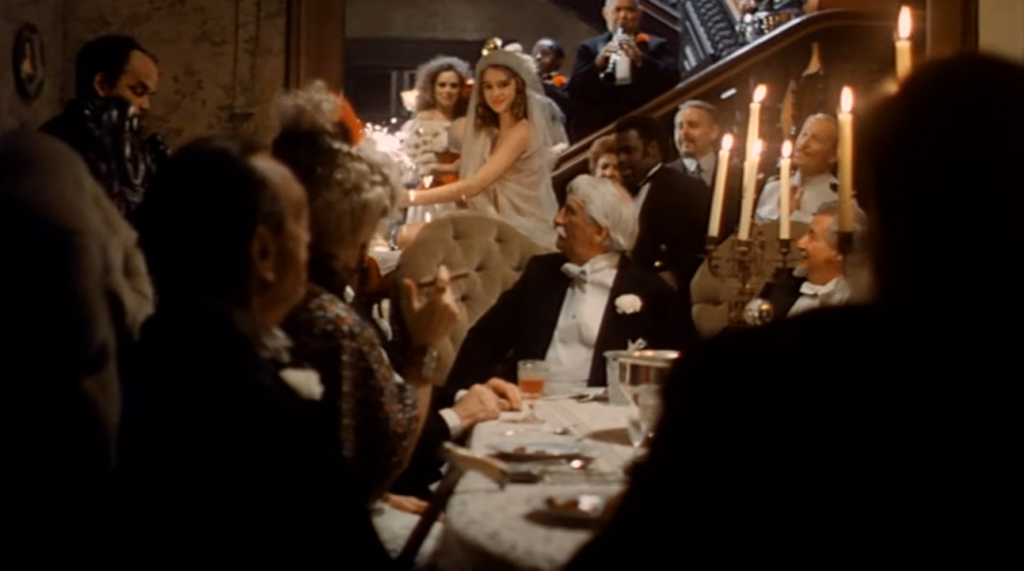
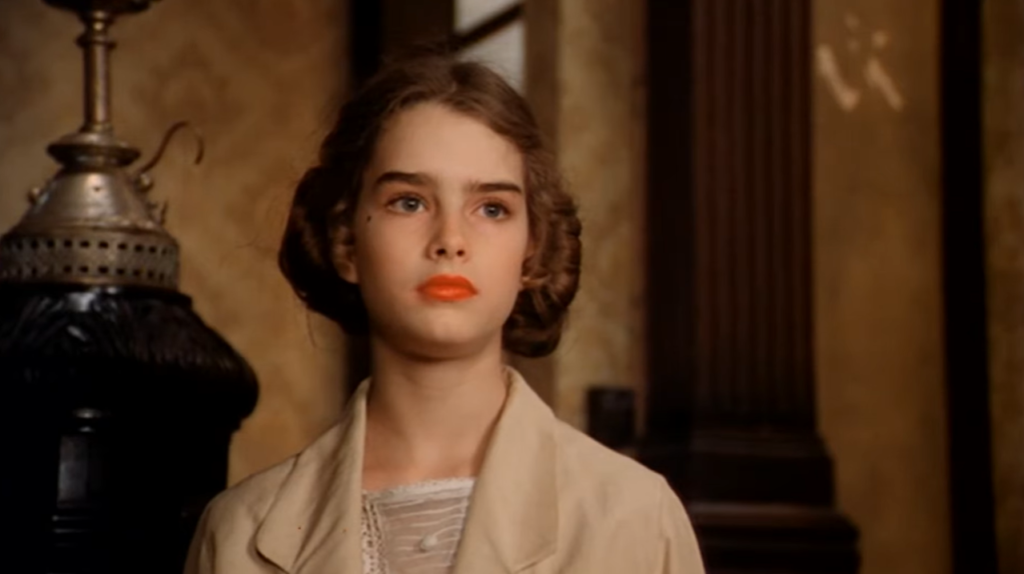
One thought on “Pretty Baby (1978)”
Rewatch 1/19/20. A once-must for its place in cinema history. As posted in ‘Revival House of Camp & Cult’ (fb) — and I have added a few extra notes following that.
“Before the war, we used to close down in the summertime. But, since the naval base came, we’re busy all year round now.”
‘Pretty Baby’: Though Louis Malle’s portrait of the last gasp of legal prostitution in New Orleans (in 1917) is set in one specific brothel, it seems a kind of Everyhouse for the time and place.
Screenwriter Polly Platt probably figured she wouldn’t be able to devise much of a story about sex in which there was no actual sex – so she gave historical focus to the photographic art of E.J. Bellocq (Keith Carradine), who is remembered for his tasteful, sensitive ‘studies’ of Storyville’s dames de la nuit.
There is a marginal ‘plot’ concerning ‘reigning queen’ Hattie (Susan Sarandon) – who longs to escape her sordid existence just around the time her virgin daughter (a 12-year-old Brooke Shields) is placed on an auction block. But Malle is more concerned with capturing the general mechanics of the milieu realistically and the people as just plain folks.
All of this is beautifully lit by Ingmar Bergman’s steady DP Sven Nykvist. Among the working girls are a pre-‘Mommie Dearest’ Diana Scarwid and horror icon Barbara Steele – but stealing front and center is legendary bisexual cabaret star Frances Faye as Madame Nell, who is rarely far from Mae West territory (“There are only two things to do on rainy days – and I don’t like to play cards.”).
When the film was first released, it caused considerable scandal as being “porn” – labeled as such by various critics (y’know, those people who you would think *know* how to look at film).
Notes on the assessment:
– To me, the outrage over the film seems misplaced. As I noted above, the film has no depiction of actual sex in it. And Malle himself was very concerned during the shoot that nothing should look pornographic. As I hinted at the end of my response, sometimes people see what they want to see in a film, rather than what’s actually in front of them.
– I’m also perplexed by the criticism that “Malle refused to portray Violet’s life in a brothel in a negative light.” Why should he have done that? Are we to think that *every* brothel was a hellhole? It seems to me that the only thing Malle ‘refused to do’ here was pornography.
– I didn’t particularly notice the script as badly written.
– ~ though I do think Carradine was miscast. But, then, outside of ‘Nashville’ and ‘Choose Me’, he doesn’t do much for me personally.
– There’s a Wikipedia page all about cult films and the wide meaning that ‘cult film’ can have. It doesn’t necessarily mean that those who enjoy a film will watch it over and over again (although that is one meaning of the term). In the case of ‘PB’, it can mean that it has appeal for a select group (who hold it in a certain regard). I can imagine a group of dedicated fans watching it while engaging in its own ‘brothel night’ theme. 😉